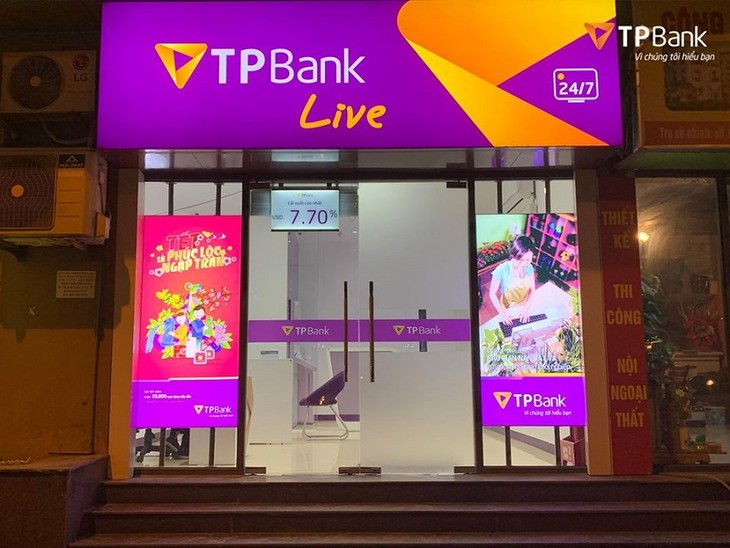(VOVWORLD) - AI and Big Data are revolutionizing industries around the world. Banks in developing economies like Vietnam will benefit the most. Economists agree that Big Data and AI will completely re-shape Vietnam’s banking industry.
 A TPBank LiveBank office. (Photo: tpb.vn) A TPBank LiveBank office. (Photo: tpb.vn) |
Dramatic advances in Big Data and AI are forcing financial institutions to make their products more diverse, more efficient and more cost-effective to meet customers’ needs.
In developing countries like Vietnam, who have a fast-growing, digitally savvy population and a financial services industry that is not hampered by legacy systems, banks find it easier to embrace those advances than in more developed countries. The COVID-19 pandemic has been a ‘booster shot’ for the adoption rate of new technologies.
Le Nguyen Truong Giang, Chairman and CEO of the CSCI Indochina Group and a strategy consultant, said, “The first thing I want to affirm is that AI will reshape the banking sector in the financial field, where banks will be involved in all financial areas, including insurance, lending, and investment.”
“Banking activities will be mixed. And banks will strive to maximize their transactions by improving the experience of the customers,” said Giang.
The most recent advances in computing have enabled banks to expand distribution networks and serve new customers remotely.
A majority of customers now do most transactions via mobile apps or on the internet through the banks' websites rather than going to a physical branch.
Giang used Tien Phong Bank (TPBank) as an example. TPBank uses LiveBank, a 24/7 online banking service that combines the basic features of banks with an online Video Teller Machine, to support its customers. After a customer chooses a transaction, the image of a teller appears and carefully guides the customer until the transaction is complete.
“In the future, as Big Data and AI are applied by banks, processes and automation will be optimized to minimize the risks of transactions and fully utilize all available banking data. This will allow banks to cut all kinds of costs,” said Giang.
Nguyen Anh Tuan, Director of the Zamba E-commerce Group and a specialist in e-commerce, said that considering customers the focus of digital transactions and expanding digital applications will help banks improve their services and provide customers with an optimal experience.
“I know that a number of banks have used AI and Big Data to take care of customers and improve their experience. All the technological innovations can be applied to digital banks. Any bank can better satisfy customers’ demands and encourage customers to use more services,” said Tuan.
A survey conducted last year by the Economist Intelligence Unit and commissioned by Temenos, a leading provider of banking software solutions, found that 77% of bank executives believe that unlocking the value of AI will be the difference between winning and losing banks.
Most banks in Vietnam are poised to reap the rewards of applying AI technology. While many tech companies have a lot of customer data, banks are amassing all the transaction data in real-time that other tech players lack.
By applying advanced analytics, banks can make new, targeted offerings at any critical point of their customer’s financial journey, serving the twin purposes of bringing in new business and reinforcing customer loyalty.
CSCI Indochina Group’s chief Truong Giang said the current state of Big Data and AI in Vietnamese banks has mainly focused on the data of individual customers and monitoring transactions to ensure that the transactions are optimized.
“In other countries the most common use of Big Data in banks is for credit scoring, which is less common in Vietnam,” Giang added.
Although Vietnam’s banks are still facing challenges in using new technologies, their business strategy, and the scale of their existing infrastructure, they are being revolutionised by the development and adoption of cloud computing, AI, and advanced data management.
This means banks can now serve the individual needs of a wider pool of clients better than at any previous time in the history of the industry.